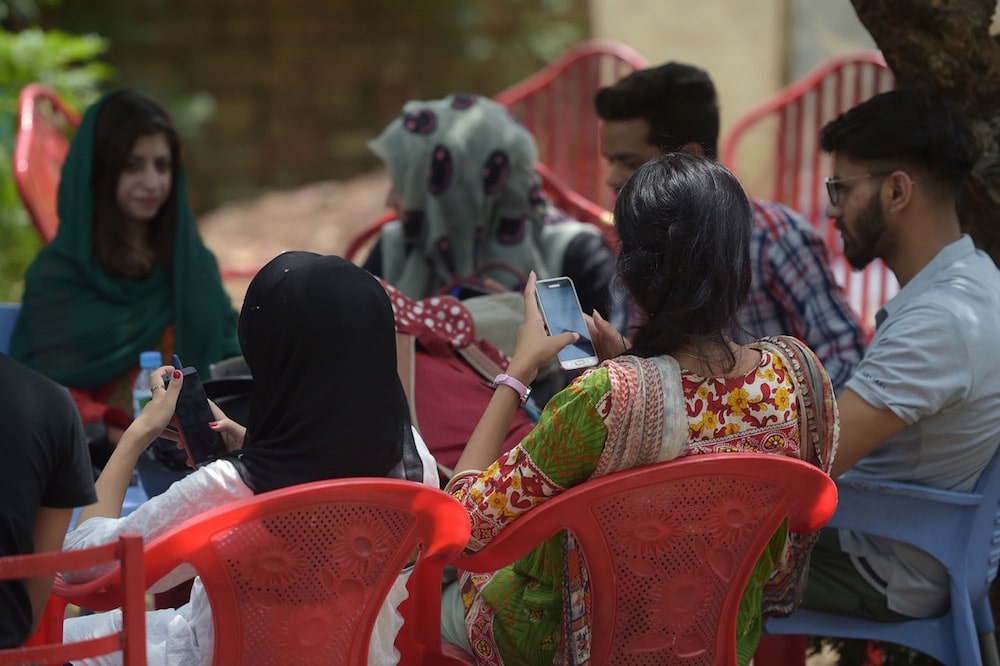When the Berlin Wall fell, many believed that the world had only one remaining superpower, the United States.
The world has changed drastically since the fall of the Wall as the Internet has taken hold and created a whole new universe of knowledge, data, and connectivity.
With the development and exponential growth of social media, I would argue that public opinion has become one of the most powerful forces in today’s world, and public diplomacy is by far the most effective non-violent weapon that diplomats have in order to prevent conflicts on the one hand and expand their country’s influence on the other.
And dealing with public opinion in this highly interconnected era requires not only a strong technological base.
It also requires a massive change in mentality, one in which governments conclude that public diplomacy is an essential tool in their diplomatic arsenal and that, without it, their national brand – the way others view them – will be adversely affected.
It is this change of mentality that poses the greatest diplomatic challenge in the 21st century. How governments influence the hearts and minds of other peoples will be the litmus test for effective 21st century diplomacy. And it will determine the ability of countries to brand themselves successfully on a global basis and achieve their goals.
Social media transcends borders, and like-minded people can join in the blink of an eye to discuss issues and come to conclusions. Global coalitions can come together and grow exponentially, and global communities of values and interests can be created easily. Messages and opinions can be shared, and policies supported or criticized by global audiences in real time.
Instantaneous and inexpensive communications technology has made the creation of Marshall McLuhan’s “Global Village” a reality half a century after this Canadian sage envisioned it.
But, as in all developments, there are positive and negative outcomes.
From a positive point of view, billions can now posit their opinions and share them with global audiences.
And from a negative point of view, billions can now posit their opinions and share them with global audiences.
In many cases, positive results have included governments and corporations not being able to hide negative developments and events from the public eye. Police brutality, mass contamination of earth, air, and water can be broadcast globally in an instant, taking to task the powers that be.
From a negative point of view, conclusions can be reached without much thought and consideration, and the lack of critical judgment on the part of discussants and opinion makers renders these conclusions wrong or even dangerous.
Often, these results conclude that life is a zero-sum game – that one side must win everything and the other lose everything.
That is the essence of much of today’s politicking.
Diplomacy has ceased to be a private matter in which governments could save face in secret and achieve difficult compromises.
What Joseph Nye has christened “Soft Power” is a vital component of international diplomacy in today’s interconnected world. I believe that the importance of soft power and public diplomacy will continue and grow as foreign ministries see the value of influencing other governments through their domestic public opinion.
We are seeing how the Confucius Institutes, the Alliance Française, the British Council, the Dante Alighieri Institutes, and the Instituto Cervantes, to mention a few, are doing outstanding work in disseminating mastery of their respective languages and cultures and creating allies in foreign countries.
These allies, in turn, usually become agents of influence within their societies and, as they climb the ladder of success in the political, academic, or business worlds, bring with them the knowledge and experience gained from affiliation with one or more of these institutes or societies.
And the synergy that this produces between cultures and nations can lead to greater understanding and consensus building between and among governments and peoples.
Edición: Laura Espejo
Agradezco cada día que tengo la oportunidad de venir aquí, señaló el jardinero
Ap
El veterano se lesionó hace un año; videos lo muestran lanzando sin problemas
La Jornada Maya
Álvaro Arbeloa asegura que la diferencia se puede remontar
Ap
El californiano impresionó en la Liga de Puerto Rico
Antonio Bargas Cicero
